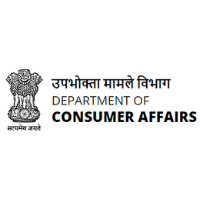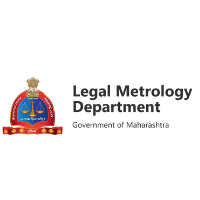What is an LMPC Import License?
The Legal Metrology Packaged Commodities (LMPC) Import License is a permit required for importing packaged commodities in accordance with legal metrology regulations. Legal metrology refers to the field of law that governs measurements and measuring instruments to ensure accuracy, transparency, and fair trade practices in commercial transactions involving goods.
In many countries, including India, the import of packaged commodities is regulated by legal metrology laws. These laws stipulate that importers of packaged goods must obtain an LMPC Import License before bringing such products into the country. This license ensures that the imported packaged commodities adhere to the specified legal metrology requirements, including accurate labeling, proper measurement of weight or volume, and compliance with packaging standards.
The purpose of the LMPC Import License is to safeguard consumers by ensuring that the packaged commodities they purchase meet the required standards and accurately represent the quantity or volume specified on the label. It also helps prevent unfair trade practices and promotes fair competition among businesses involved in the import and sale of packaged goods.
Check out the LMPC Import License Video
What are the Benefits of a LMPC Import License?
Compliance with Legal Requirements
Obtaining an LMPC Import License ensures that importers comply with legal metrology regulations governing the import of packaged commodities. This helps importers avoid penalties, fines, or legal issues that may arise from non-compliance.
Consumer Protection
The license ensures that packaged commodities meet the prescribed standards for accurate labeling, proper measurement, and adherence to packaging regulations. This protects consumers from misleading information, inaccurate measurements, or substandard packaging.
Fair Trade Practices
The LMPC Import License promotes fair trade practices by maintaining a level playing field among importers. It ensures that all imported packaged commodities undergo the same scrutiny and comply with the same regulations, preventing unfair advantage for non-compliant or substandard products.
Quality Assurance
The license acts as a quality assurance measure, guaranteeing that imported packaged commodities meet the specified standards. This enhances consumer confidence in the products they purchase, promoting trust and credibility in the marketplace.
Market Access
An LMPC Import License may be a prerequisite for accessing certain markets or distribution networks. By obtaining the license, importers gain entry into these markets, expanding their business opportunities and potential customer base.
Government Oversight
The license facilitates government oversight and control over imported packaged commodities. It enables regulatory authorities to monitor and enforce legal metrology regulations, ensuring the integrity of trade practices and protecting public interests.
Why LMPC Import License is Required?
The LMPC Import License is required for several reasons. It ensures regulatory compliance with legal metrology regulations, including accurate labeling, proper measurement, and adherence to packaging standards.
The license aims to protect consumers by ensuring that imported packaged commodities meet the prescribed standards and accurately represent their quantity or volume. It promotes fair trade practices by creating a level playing field for importers and prevents unfair advantages for non-compliant or substandard products.
The license acts as a quality assurance measure, maintaining product integrity and enhancing consumer confidence. It enables government oversight, market surveillance, and standardization in the importation of packaged goods.
Who can get LMPC Import License?
Manufacture Company
Food Importer
Cosmetic Importer
Importer & Packager
Document Required for LMPC Import License
Role of Shamkris and Process of LMPC Import License
Shamkris adopts a results-oriented approach to compliance with mandatory licence requirements in the organization. A simple and guidance methodology help organisation to achieve licence in a timely manner and cost-effective. Shamkris support 100% in advisory, Guidance, Compliance with respect to license requirements to obtain approval.
The License process described below:
- Advisory for the document required
- Preparation of documents as per application & list of documents.
- Application File
- Inspection by the department if required
- Liason department
- Yearly Compliance if Applicable
- Renewal when due


